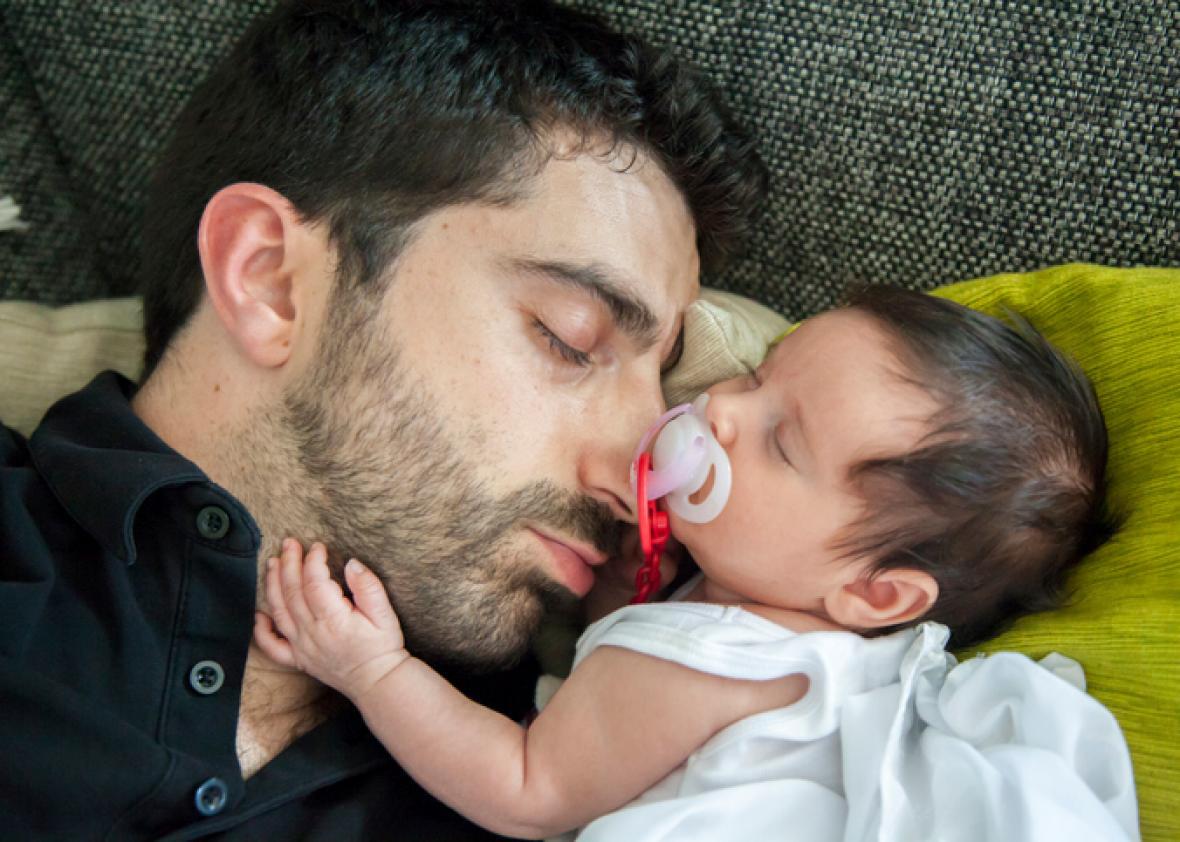Donald Trump’s federal budget proposes significant cuts to nearly every federal agency and program that doesn’t involve weapons or border walls. But one of the few big-ticket spending proposals in the document is paid family leave, an issue Ivanka Trump has claimed as her own.
Trump’s original parental leave plan, which would have excluded fathers, adoptive parents, and all parents who didn’t physically give birth, was widely derided by parents and policymakers for its willful ignorance of the realities of contemporary American family life. The revised plan purports to offer six weeks of paid leave to any new parent; but because it passes the logistical and financial responsibility of implementing any new program on to the states, it’s very unlikely to ever amount to universal coverage, even if it manages to pass through Congress.
White House officials have said the program stands to benefit 1.3 million Americans at a cost of $25 billion over a decade. No one, no matter how wealthy, will be excluded from the program, though members of the Trump administration say they would advocate for some limit to the amount of money high-income families could receive. That means the bulk of the funding would almost certainly go to people who could already afford to take unpaid leave if they had to. This approach is the Trump family’s preferred legislative strategy: Offer some nominal benefit to families in need while shifting loads of money to high earners; then, depending on how much you can get away with, make some incremental shift that engenders the appearance of humane progress.
It was the same situation with child care. Ivanka’s initial proposal would have given her millionaire neighbors thousands of dollars in annual tax breaks while giving average American families less than $20 a year toward child care. After the plan attracted widespread criticism, Trump changed the plan to a still-inadequate hypothetical proposal that would give low-income families a bit more support but also deregulate daycare.
Currently, under federal law, all U.S. workers who’ve worked at least 1,250 hours at a company with at least 50 employees over the previous year can take 12 weeks’ unpaid leave with the guarantee of getting their job back. The U.S. is the only developed nation without any federal paid leave provisions, and the six weeks Trump has proposed would still leave the nation well behind its peers. Still, a Republican president supporting a policy routinely smeared by business owners, including Trump himself, as an unreasonable expense may signal a move in the right direction among party leaders. A 2012 survey found that nearly one quarter of employed mothers returned to work just two weeks after giving birth, and only 13 percent of private employees in the U.S. get any kind of paid leave from their employers. Families are desperate for any kind of assistance.
But six weeks is the absolute minimum recovery time doctors recommend for women who’ve given birth vaginally without any complications. Mothers who deliver via Caesarean section or who experience difficulties will need more time to physically recuperate. Forcing mothers who are struggling to make ends meet to return to work just six weeks after delivery is a poor way to encourage mothers to breastfeed, as public health officials want to do. And it’s bad policy in terms of infant health and survival, which are bolstered when parents can give individual care to their young babies at home. Day cares are not well-suited for six-week-old babies, and many child care centers won’t even accept infants that young.
That’s not even the weakest part of Trump’s proposal, though. The plan would require every state to set up its own paid leave program if it doesn’t already have one. (Only California, New York, Rhode Island, New Jersey, and Washington, D.C. do.) At ThinkProgress, Bryce Covert points out that states may simply choose to ignore the federal mandate. In the shadow of the Supreme Court’s ruling that individual states have the right to decide whether or not to join the Affordable Care Act’s Medicaid expansion, right-wing governors and state legislatures that oppose universal paid parental leave might take their legal chances and refuse to establish a program. Trump’s plan also relies on existing state-run unemployment insurance infrastructure, which is already straining under the weight of post-recession demands.
Even if Trump’s budget does succeed in giving every family six weeks of parental leave—paid at a proportion of parents’ salaries large enough that they’ll actually be able to use the program—the benefits to parents and children may be outweighed by the damage the budget does to low-income families at every other point of government assistance. Trump wants to end programs that serve low-income children with after-school care, help millions of parents access child care while they attend college, and give low-income pregnant women and infants nutritional support. His budget would sentence low-income parents and their children to suffering and death with a $1.4 trillion cut to Medicaid. Six weeks of partially paid leave will do little good for a family with no food in the refrigerator, no insurance to pick up the maternity bill, and no money for child care once an infant’s parents go back to work.
*Correction, May 24, 2017: This post originally stated that federal law guarantees 12 weeks’ unpaid leave to anyone who has worked at a company with at least 50 employees for a year before her leave. The employee also needs to work at least 1,250 hours in that time period.
